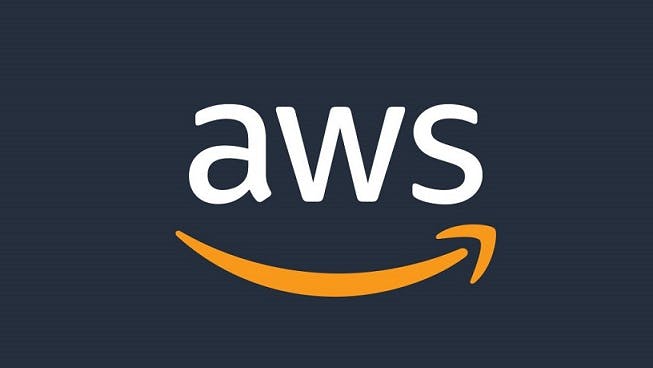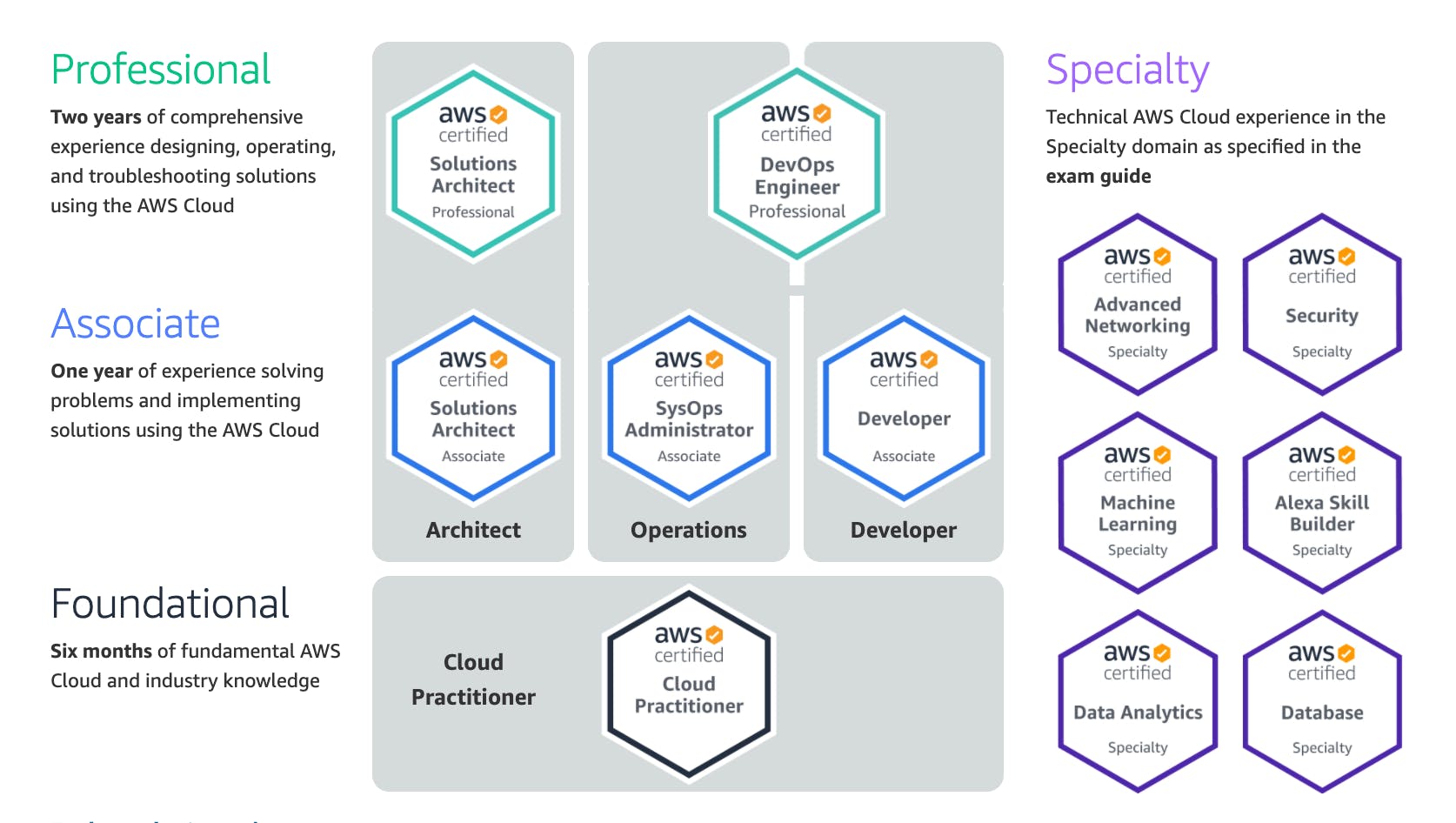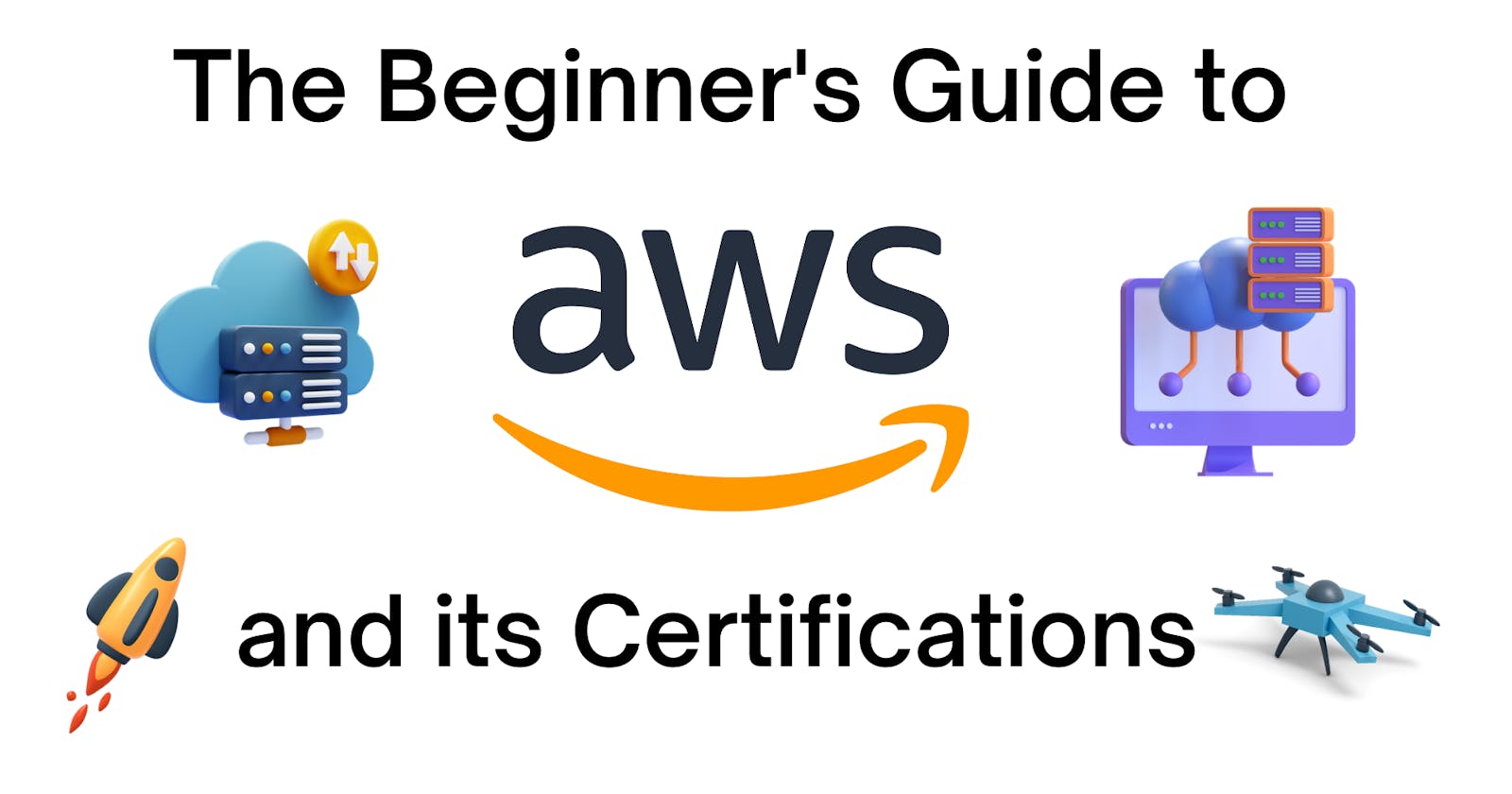The Beginner's Guide to AWS and its Certifications
A one-stop guide to knowing about AWS cloud services and its Certifications with a step-by-step process to achieve them.
Hello World 👋
Glad to see you again! 😊
Welcome to the AWS blogs series!
This is the first blog of the series and I'm starting off with the Introduction to Cloud Computing, AWS, and AWS Certification. So, let's gooooo.
Today, it’s not just enough to know software like Microsoft Word or Adobe Photoshop. The modern tech market has become fast-paced, high-pressure, and exceedingly tech-driven. As a result, companies are prioritizing team members with cutting-edge tech skills that can directly impact the company’s success. Cloud technology has been around for a few years now, with its adoption increasing year on year. It’s not just businesses that are seeing the benefits of cloud computing, however; individuals can also take advantage of it. In this article, we are going to explore what AWS is and how can you stand out from the pack with a combination of impressive resume stats and hands-on expertise by earning these certifications.
Introduction
What is Cloud Computing? ☁
Cloud computing refers to the on-demand availability of computer system resources, data storage, IT resources, computational power, and technology to work without the user's direct active supervision. It helps you access data from a remote server. These remote servers are called data centers which are physical servers built for computing and running services instead of actual servers that take space and require a lot of maintenance.
5 Reasons you should learn Cloud Computing this year
- Cloud is the Future
- Standing out from others
- Huge Job Opportunities
- Six-Figure Salary
- Great Skills for an IT Professional
Best Cloud Services
There's a huge competition between the top cloud service providers but because of different architecture, customization options, pricing, etc., the world hasn't yet figured out who lies in the 1st position. So, here is a list of one of the top cloud service providers
- Amazon Web Services
- Microsoft Azure
- Google Cloud
- IBM Cloud
- Oracle Cloud Infrastructure
- CloudLinux ........... and the list goes on.
AWS (Amazon Web Services)

What is AWS? 🤔
AWS stands for “Amazon Web Services” and is a cloud-computing platform owned and operated by Amazon. The AWS platform allows businesses to rent out cloud-computing resources like server space, databases, networking tools, computing power, and more. AWS is a hugely popular choice among software teams from all industries. Millions of clients use AWS to save costs, increase agility, and accelerate innovation, including the largest corporations, most successful governmental organizations, and the fastest-growing startups.
History of AWS ⏱
- The year 2002 - AWS was launched
- The year 2006 - AWS cloud products and services were launched
- The year 2012 - AWS had its first customer event
- The year 2015 - AWS achieved $4.6 billion in revenue
- The year 2016 - Surpassed the $10 billion revenue target
- The year 2019 - Released approximately 100 cloud services
- The year 2021 - Earned a whopping $62.2 billion in revenue
Why AWS? 💭
AWS provides a wide variety of global cloud services that are used by companies of all sizes. It is a reliable, scalable, and cost-effective service that can be used to build and power the most complex applications. The best thing about AWS is that it has 'pay as you go' pricing model. You can literally start from storing your data to running your entire multi-billion dollar company on AWS. It is super easy for beginners to get started and has enough documentation to get you going. AWS is highly secure, high availability of 80 availability zones and 25 data centers all over the globe, and is scalable and flexible to the limits you can't even imagine (AWS claims that "The total volume of data and number of objects you can store are unlimited" ) and has very little investment. It is used by a lot of popular companies. Some of them are:
- Netflix 📺
- Coca-Cola 🥤
- NASA 🛰
- Volkswagen 🚗
- Expedia ✈
- BYJU'S 📕
- Hotstar ⭐
- TATA 🚗
- Wipro 👨💼
- OYO 🏨 ........... and the list goes on.
Certifications 🏅

Why You Should Get an AWS Certification?
AWS certifications are in hot demand in the tech industry as a whole. This means you have a ton of career opportunities at your fingertips if you’ve earned one of these credentials. What’s more, AWS certifications are especially in high demand right now due to the explosive growth of technology. With more people than ever before turning to cloud computing, there’s a clear need for trained and highly qualified technical professionals. AWS certifications are highly valuable in a couple of key ways:
- They demonstrate technical skills and build credibility.
- They show that you are certified by a trusted third-party like Amazon which is a huge achievement.
Different types and levels of AWS Certification

There are four main certification levels and in total there are 12 certifications:
- Foundation
- Associate
- Professional
- Speciality
There are no prerequisites for giving a certification exam that is it is not necessary to start from the beginning. If you have the knowledge of AWS services then you can start from the Associate level but it is always recommended to start from scratch.
How to Become AWS Certified?
The process of becoming certified on AWS is fairly straightforward and largely similar to all the available certifications. AWS offers different certifications for different levels of expertise and for different employment fields. In order to become certified, you need to pass an exam. Exams can be given in two formats. Either online or in-person from a center. AWS offers a number of exam types, including single-option MCQs, multi-option MCQs, and written essays. Depending on the level you’re aiming toward, the exam varies in length and difficulty. You can prepare for your exam by going through the AWS documentation, attending a boot camp, learning from courses online, or using a self-guided study guide. AWS also offers a certification reimbursement program for employees at select companies. This is a great way for companies to incentivize their employees to pursue AWS certification.
Recommendation & Tips
5 Tips for Succeeding in an AWS Certification Exam
There are a few things you can do to help yourself pass your certification exam.
- Review the exam objectives and make sure you’re familiar with every topic.
- Take Notes and list down the important points.
- Go back and refresh your knowledge on any topics you’re having a hard time grasping.
- Practice Exams will boost your confidence and will help you understand the areas in which you need to work on.
- Try to do hands-on too so that you'll get a better understanding of the service
🌟 Wrapping up
Getting an AWS certification is a great way to boost your resume, stand out from the crowd, and earn a higher income. AWS certifications are especially in demand in the tech industry right now because cloud computing is growing exponentially. With more people than ever before moving to cloud computing, there’s a clear need for trained and highly qualified technical professionals. Now that you know the ins and outs of getting an AWS certification, it’s time to start studying and practicing for the exam. With a bit of preparation and practice, you can be sure you’re well on your way to passing the exam and achieving certification.
📃 About this series
Well, this was my first blog of the series giving you an introduction to AWS and its certification. Hope you liked it. Soon, I'll be publishing blogs on useful resources and learning materials, road maps, blogs on different services that AWS provides, guides to every certification and how to excel in them, and a lot more...
Follow me on Twitter and subscribe to the newsletter on Hashnode to get notifications on the upcoming blogs.
🌎 Let's Connect
Share this blog with your friends 👩🏼🤝🧑🏼 and developers 👨💻 you know and let them know about this AWS Series!
Feedback and Comments are welcomed here! 💌
